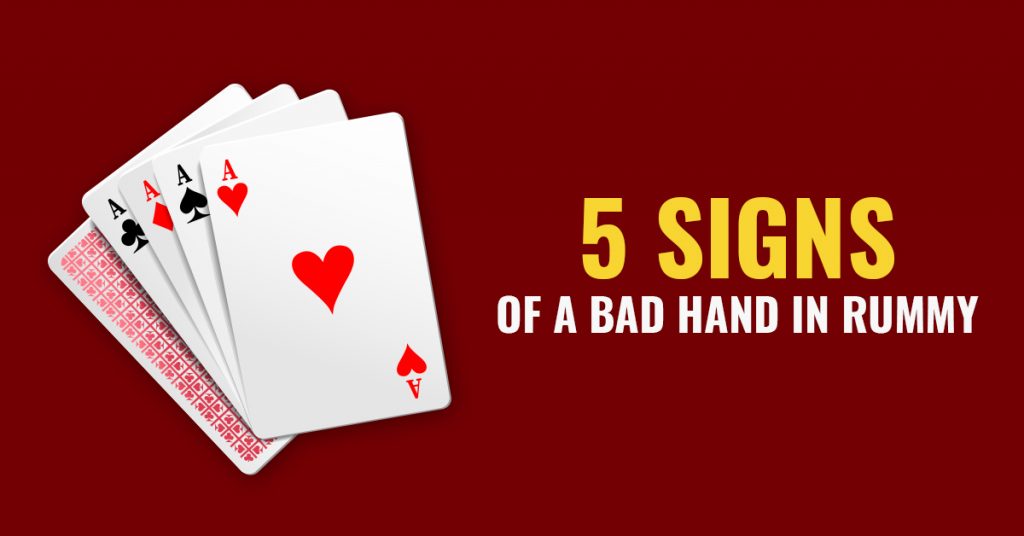
Winning a rummy game primarily depends on two factors – the cards you receive and how good your rummy strategies are. One of the critical aspects of rummy strategies is your ability to predict if your opponent is having a bad hand. If you are good at predicting your opponent’s hand, there’s an excellent chance to refine your rummy strategies according to the situation. It is easy in an offline rummy game as your opponents are in front of you giving enough giveaways like face reaction etc.
However, online rummy game is a different breed altogether. Here, you don’t get to see your opponents directly, and in all probability, they might be living in an entirely different geographical location from you. How can you know if your opponent has a bad hand? As you don’t have a way to see his face, the best you can do is observe his game play. As you follow his game-play, you get enough clues that would be enough to seal the game. Hard to believe? Here are the five ways through which you can get to know if your opponent has a bad hand.
Five moves that indicate if your opponent is having a bad hand
1. Bluffing
If Your opponent is a seasoned veteran, he will not give up that easily. The most stimulating element associated with rummy is bluffing. Bluffing is one of the most effective tricks in a card game. Rummy pros often bluff their way to win. If your ordinarily calm and calculative opponent, suddenly plays a loose and fast game blowing hot and cold, then there is a chance he is bluffing. It’s not that easy to identify bluffing as your opponent remains unseen. The best way is to have a firm grip over your hand.
2. Discarding High-value cards
If your opponent keeps dropping high cards (A, J, Q, and K), then it is evident that he is trying to reduce the point load. If the player has a winning hand, he won’t keep discarding high-value cards continuously. Some players might do it as a bluff. However, in most cases, you can be confident that your opponent has a bad hand.
3. Discarding Low-Value cards
Discarding high-value cards reduce the point load but what if a player discards low-value cards? Yes! There are many instances where players will keep discarding low-value cards. It’s a trap; your opponent does that to unsettle you. As you become jittery, you become prone to commit mistakes which your opponent capitalize brilliantly. Make sure if your opponent discards low-value cards more than once in a game, it means they might be having a bad hand, and he/she is probably setting up bait.
4. Picking up middle-value cards
If your opponent is picking up lots of middle-value cards (5, 6), then it’s pretty clear he doesn’t have a right hand and is trying to make up for it by trying to meld a sequence with mid-value cards. A mid-value card can combine with both low and high-value cards. There lies its advantage.
5. Picking up from the open deck
If your opponent has a good hand, he would more likely pick his cards from the closed deck. If he picks up cards from the open deck, it means his desired cards are with his opponents. Instead of folding if the player picks up continuously from the open deck then it’s clear that he’s struggling with a bad hand. In this case, as a player, you need to be extra careful with your discards as they might grab it the moment you drop.
Conclusion
Getting a bad hand is not so uncommon in online rummy; professional players know the difference between a playable and unplayable distinction. Smart players know the distinction and can turn even a bad hand into something useful. The trick here is to stay alert all the time and put your rummy tricks into use productively.
